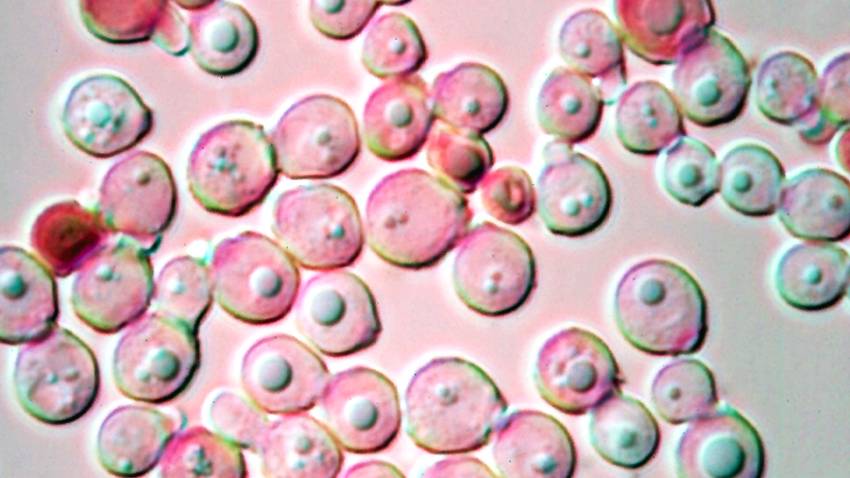Summary: A new study reveals that Malassezia globosa, a common skin fungus, can colonize breast tissue and promote tumor growth, potentially impacting breast cancer prognosis and treatment approaches.
Estimated reading time: 7 minutes
Researchers have discovered that a widespread skin fungus, Malassezia globosa, may play a significant role in accelerating breast cancer tumor growth. The study, published in the journal mBio, sheds light on the complex relationship between microorganisms and cancer, potentially opening new avenues for diagnosis and treatment.
The research team, led by Professor Qi-Ming Wang from Hebei University in China, found that M. globosa can colonize breast fat tissue and trigger mechanisms that speed up tumor development. This finding adds to the growing body of evidence linking microbial imbalances to cancer progression.
Why it matters
Understanding the role of microorganisms in cancer development could lead to new strategies for prevention, diagnosis, and treatment. This research highlights the importance of maintaining skin health not just for cosmetic reasons, but as a potential factor in overall well-being and cancer risk.
The Fungus-Cancer Connection
M. globosa is a yeast-like fungus commonly found on human skin. While it’s generally harmless, this new research suggests it may have more sinister effects when it invades deeper tissues.
To investigate the fungus’s impact on breast cancer, the researchers conducted experiments using mouse breast cancer cells. They transplanted these cells into mice and then injected M. globosa into the mammary gland fat pad. At the end of the experiment, they examined the tumor tissue to measure its size and observe the presence of M. globosa within the tumors.
The results were striking. Professor Wang explained, “We discovered that M. globosa colonizes in breast fat pads leading to tumor growth. As a lipophilic yeast, the breast fat pad may provide an external source of lipids for the development of M. globosa.”
Unraveling the Mechanisms
The study didn’t just observe the tumor growth; it also delved into the underlying mechanisms. The researchers found that the fungus triggers an inflammatory response, specifically involving a protein called interleukin-17a (IL-17a) and immune cells known as macrophages.
This IL-17a/macrophage axis appears to play a crucial role in how M. globosa accelerates breast cancer growth. The fungus seems to alter the tumor’s immune environment, potentially making it more favorable for cancer progression.
Additionally, the researchers discovered that M. globosa infection led to an increase in the expression of an enzyme called sphingosine kinase 1 (Sphk1) in breast tumors. This enzyme is involved in lipid metabolism and has been linked to cancer growth in previous studies.
Broader Implications for Cancer Research
This study adds to a growing field of research examining the relationship between microbes and cancer. Professor Wang commented on this trend: “Although still controversial, the relationship between microbes and cancer is gaining attention. The imbalance of the microflora in the tumor may lead to disorder in the tumor microenvironment.”
He drew parallels to other known microbe-cancer connections, such as the link between Helicobacter pylori and gastric cancer, and Fusobacterium nucleatum’s potential as a colorectal cancer biomarker.
“Bacteria or fungi may play a direct (e.g., toxins) or indirect (e.g., inhibition of anti-tumoral immune responses) role in the tumorigenesis pathways of many of these risk factors,” Wang explained. “The imbalance of microbial homeostasis in tumors has a certain significance for cancer diagnosis, treatment and prognosis.”
Unanswered Questions and Future Research
While this study provides compelling evidence for M. globosa’s role in breast cancer progression, many questions remain. The researchers note that the exact route by which the fungus travels from the skin to breast tissue is still unclear.
Future research will likely focus on:
- Understanding how M. globosa moves from the skin to deeper tissues
- Investigating whether other skin fungi have similar effects on cancer growth
- Exploring potential preventive measures or treatments targeting fungal colonization
- Examining the broader implications for skin care in cancer prevention
Professor Wang emphasized the importance of skin care in light of these findings: “It is important to take care of skin not only for beauty, but also for health. As a factor promoting tumor growth, intertumoral microorganisms need to be paid more attention.”
This research underscores the complex interplay between our bodies and the microorganisms that inhabit them. As our understanding of these relationships grows, it may lead to new approaches in cancer prevention and treatment, highlighting the importance of holistic health perspectives that consider the role of microbes in disease.
Quiz:
- What is the name of the skin fungus found to accelerate breast cancer growth? a) Helicobacter pylori b) Malassezia globosa c) Fusobacterium nucleatum
- Which enzyme’s expression was increased in breast tumors after inoculation with the fungus? a) Interleukin-17a b) Sphingosine kinase 1 (Sphk1) c) Nuclear factor kappa-B
- What type of tissue did the researchers inject the fungus into during their experiments? a) Liver tissue b) Brain tissue c) Mammary gland fat pad
Answers:
- b) Malassezia globosa
- b) Sphingosine kinase 1 (Sphk1)
- c) Mammary gland fat pad


